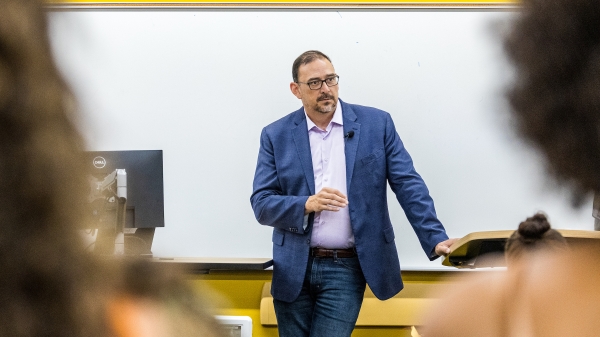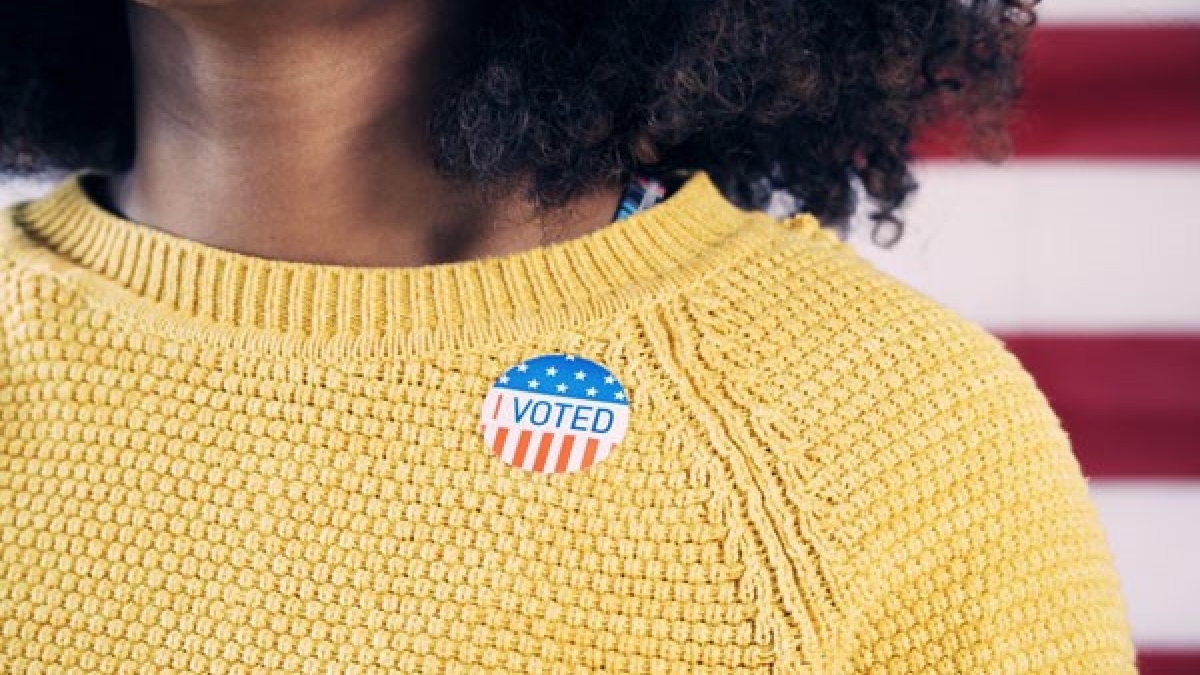How does the American federal electoral system hold up in times of controversial elections?
This question is among the topics of discussion for the interdisciplinary cast of speakers at the upcoming Conference on Elections and Federalism, co-hosted by Arizona State University's Center for Constitutional Design in partnership with the University of Wisconsin’s State Democracy Research Initiative.
Participants at the Oct. 7–8 conference will consider how federalism affects electoral institutions in the United States, how we might evaluate U.S. electoral institutions under international standards of electoral efficacy, and how varying institutional structures and conflicts within states shape electoral administration and procedures. Keynote speakers are UCLA Law Professor Richard L. Hasen and Sarah Longwell, president and CEO of Longwell Partners and publisher of “The Bulwark.”
Contentious election results are not new to the United States. There have been several times throughout American history when presidential elections were cast into doubt.
The first and perhaps most iconic example, the 1800 presidential election, resulted in an Electoral College tie between candidates Thomas Jefferson and Aaron Burr, which was resolved — as provided for in the Constitution — by a House of Representatives vote. Other presidential elections have proved controversial when the winner of the Electoral College vote failed to muster a popular majority (1824, 1876, 1888, 2000 and 2016).
And yet, in every controversial case, ultimately the presidential candidate on the losing end of the election accepted the election results, upholding the legitimacy of the American electoral system — until 2020.
In fact, recent elections have raised questions about how we conduct elections in the American federal system. The Constitution generally grants the states the power to prescribe the “Times, Places and Manner of holding Elections for Senators and Representatives” (Article I, section 4), a power that the states guard carefully. And yet the Constitution also grants Congress the power “at any time by Law” to “make or alter such Regulations.” But the document leaves it to congressional discretion when and why such an intervention might become necessary.
“National elections conducted through a federal system of state and local jurisdictions allow elections to be managed by the officials closest to the people, but controversial elections create doubt about the legitimacy of our electoral system and undermine trust in the American democratic system,” explained Stefanie Lindquist, executive director of the Center and Foundation Professor of law and political science at ASU. “It is important for us to host conversations with participants from across the ideological spectrum to discuss the challenges to our electoral institutions.”
The conference will explore the effects of federalism on American national elections through such questions as: When is the decentralized nature of the U.S. electoral system important for sustaining democracy? Are there times when state and local control of elections undermines or creates a challenge to ballot access and voting integrity? Should there be more comprehensive national standards governing U.S. election procedures?
Miriam Seifter, associate professor and co-director of the State Democracy Research Initiative at the University of Wisconsin Law School, said the initiative was delighted to co-sponsor the event with ASU.
“This event both facilitates discussions of critical topics at an important time in our country and also fosters collaboration across states,” Seifter said.
Registration for the conference is open for in-person attendance at the Beus Center for Law and Society in downtown Phoenix.
The Center for Constitutional Design is part of the Sandra Day O'Connor College of Law at ASU.
More Law, journalism and politics

New report documents Latinos’ critical roles in AI
According to a new report that traces the important role Latinos are playing in the growth of artificial intelligence technology…

ASU's Carnegie-Knight News21 project examines the state of American democracy
In the latest project of Carnegie-Knight News21, a national reporting initiative and fellowship headquartered at Arizona State…

Arizona secretary of state encourages students to vote
Arizona Secretary of State Adrian Fontes looked right and left, taking in the more than 100 students who gathered to hear him…
